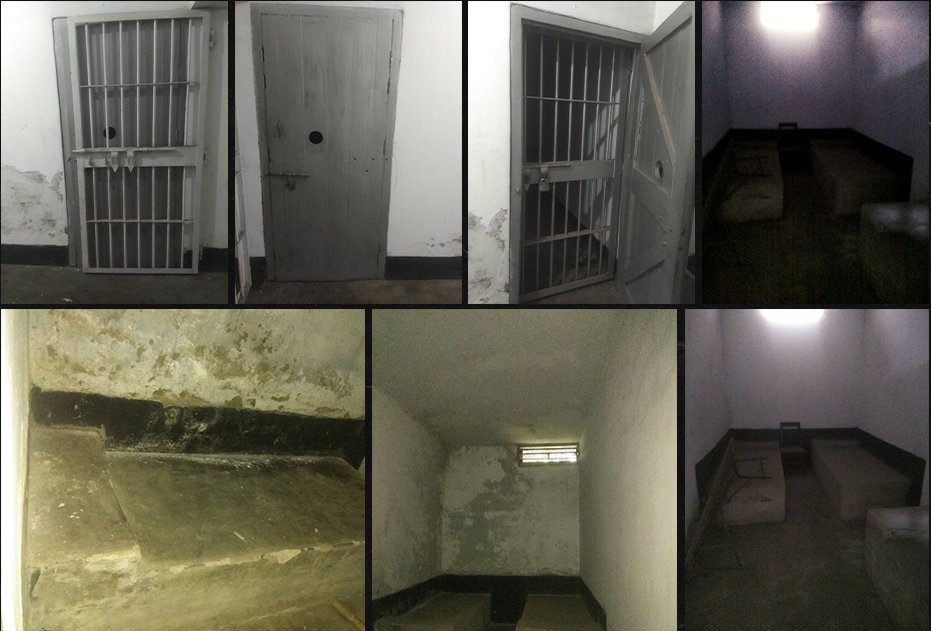– CA denounces Awami League’s ‘reign of darkness’
– Some victims were falsely accused and detained for years
– The government vowed to ensure justice and prevent future atrocities
London, 12 February- The autocratic Awami League government, led by Sheikh Hasina and ousted during the mass uprising in July, had established a reign of darkness or an “Age of Ignorance” (Ayyam-e-Jahiliya) in the country, said Dr Muhammad Yunus, chief adviser to the interim government.
Dr Yunus made these remarks after visiting secret detention facilities that operated under the Awami League administration. On Wednesday, after inspecting the notorious secret prisons, including the Aynaghar (Mirror Room) in three areas of Dhaka, Dr Yunus said: “There is a term called Ayyam-e-Jahiliya, and the last government had indeed established such an era. This facility is an example of that.”
During his visit to these infamous sites, he witnessed the extent of atrocities committed by the previous regime. “Aynaghar is just one example. To allow such instances to happen in this country is everyone’s crime,” he said. The visit, which included survivors of torture and both domestic and international journalists, shed light on the harrowing experiences faced by those detained in these secret prisons.
The chief adviser was accompanied by several members of the Advisory Council and the Disappearance Investigation Commission. During the visit, Dr Yunus was shown a torture chair used in a facility in Agargaon, Dhaka, as well as walls from torture cells in Kachukhet, another notorious area. Numerous allegations had surfaced about the abduction of opposition figures, their detention without trial, and the creation of these secret detention and torture sites.
Dr Yunus noted: “I thought there were just a few of these facilities. But now I hear there are many versions of the ‘Mirror Rooms’ scattered across the country. Some claim there are 700 or 800. We can’t even count how many, and many remain unknown.” He emphasized that the creation of such conditions by the former government reflected a failure of the nation’s moral compass. “The cruelty is beyond belief. How could this happen in our world, our society?” he asked.
He recounted how some victims shared their experiences, revealing that some were falsely labeled as terrorists and detained without any justification. Prof Yunus highlighted the extreme deprivation of even the most basic human rights, recalling a victim’s statement: “One person said he was kept in a cramped space, smaller than even a chicken coop, for years on end.”
The chief adviser further stressed that unless society eliminates such atrocities, it will not survive. He underscored the importance of building a just society, ensuring accountability for the perpetrators, and preserving evidence to prevent these crimes from fading into history. Although some of the missing have returned to their families and shared their horrific experiences, many others remain unaccounted for. The Interim Government’s Disappearance Investigation Commission has been tasked with locating these hidden detention centers.
Dr Yunus commended the commission’s efforts, noting that they confronted brutal truths that other commissions could not. “The things they uncovered are truly disturbing,” he said, expressing gratitude for their relentless pursuit of justice. Describing the Aynaghar as a reflection of the nation’s moral decay, Yunus said: “This is a document of national destruction, where even the most basic human rights were denied. The evidence presented by the commission will be vital for future generations.”
The chief adviser also reflected on the collective responsibility for allowing such atrocities. “Today, we are free, and we must build a new society, far removed from this darkness,” Yunus emphasized.He added that the commission’s findings must serve as a lesson to ensure such violations are never repeated.
In July, current Information and Broadcasting Adviser Nahid Islam and Local Government, Rural Development, and Cooperatives Adviser Asif Mahmud Sajib Bhuiyan were abducted by plainclothes men. They were held in torture cells. During the visit to the Aynaghar, Nahid Islam and Asif Mahmud Sajib Bhuiyan identified the very cells where they were tortured.
After touring detention site, Information Adviser Nahid Islam shared his harrowing experience. He recalled: “The room where I was held had a basin-like structure on one side, serving as a toilet.” He added that, after August 5, the walls dividing the cells were torn down and repainted.
Adviser Asif Bhuiyan also reflected on his ordeal, noting: “The cell where I was detained had exhaust fans in the upper sections of the walls, but they are no longer there.” Following the tour, Humam Kader Chowdhury, a member of the executive committee of the BNP, spoke about his terrifying memories. Joining virtually for the inauguration of a school in Rangunia, Chittagong, he revealed that he, too, had been detained in a Mirror Room for a month and vividly described the torture he endured.
According to the Chief Adviser’s press wing, the Disappearance Investigation Commission’s report, submitted on December 14, 2024, documents incidents that occurred from January 6, 2009, to August 5, 2024, the day the government fell. The interim government’s primary goal is to ensure that justice is served swiftly and that the brutal acts of the past are never repeated.
By documenting and preserving this dark chapter of Bangladesh’s history, Dr Yunus declared, “We will use these findings as evidence to ensure that no one escapes accountability. The truth must be revealed.” After visiting the Aynaghar, the interim government made a solemn vow that such incidents will never happen again, with the recommendations of the commission guiding the nation forward into a just and reformed future.

